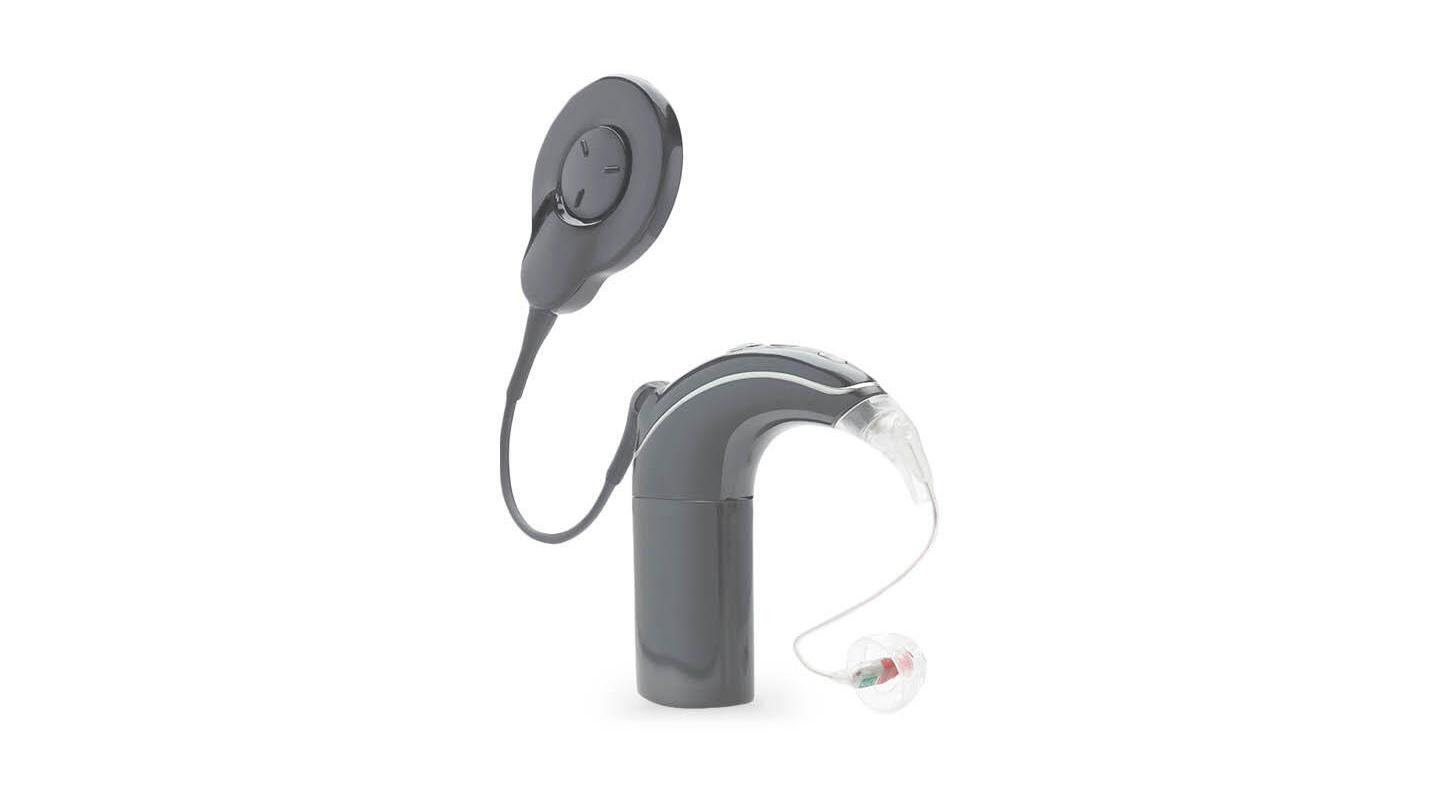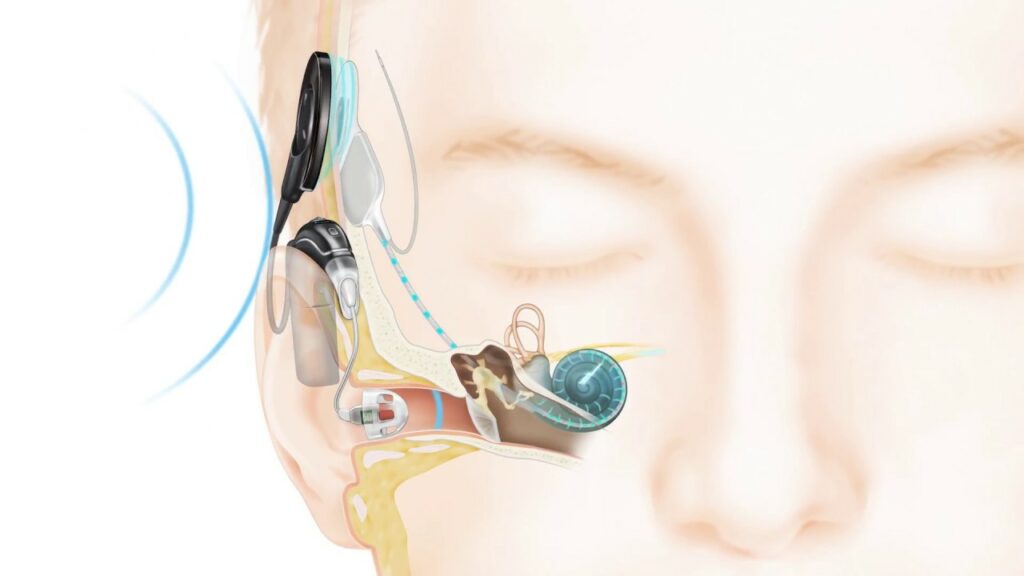
A hybrid cochlear implant is a type of hearing device that combines the benefits of a traditional hearing aid with those of a cochlear implant. It’s designed for individuals with residual low-frequency hearing who also have severe to profound high-frequency hearing loss.
The implant has two parts: an external processor and an internal implant. The external processor is similar to a traditional behind-the-ear hearing aid and is responsible for amplifying low-frequency sounds. The internal implant is surgically implanted and is responsible for stimulating the auditory nerve for high-frequency sounds.
The device works by utilizing the residual low-frequency hearing of the individual and combining it with the stimulation provided by the implant. This combination can provide better sound quality and speech understanding in noisy environments than traditional hearing aids or cochlear implants alone.

The hybrid cochlear implant is suitable for individuals who have severe to profound high-frequency hearing loss and residual low-frequency hearing. This type of hearing loss can be caused by various factors, such as age-related hearing loss or noise-induced hearing loss.
Suitable candidates should also have good speech understanding with their residual low-frequency hearing. This is because the implant is designed to amplify low-frequency sounds and provide additional stimulation for high-frequency sounds. Individuals who do not have good speech understanding with their residual low-frequency hearing may not benefit from a hybrid cochlear implant.
Benefits of a hybrid implant include improved sound quality and speech understanding in noisy environments, as well as better localization of sounds. It can also improve quality of life and communication ability for individuals with severe to profound high-frequency hearing loss.
In conclusion, a hybrid cochlear implant is a hearing device that combines the benefits of a traditional hearing aid with those of a cochlear implant. It’s designed for individuals with severe to profound high-frequency hearing loss and residual low-frequency hearing. The hybrid device can provide better sound quality and speech understanding in noisy environments and improve localization of sounds. Suitable candidates for the implant should have good speech understanding with their residual low-frequency hearing. It’s essential to work with a healthcare provider to determine if a hybrid cochlear implant is the right treatment option.
